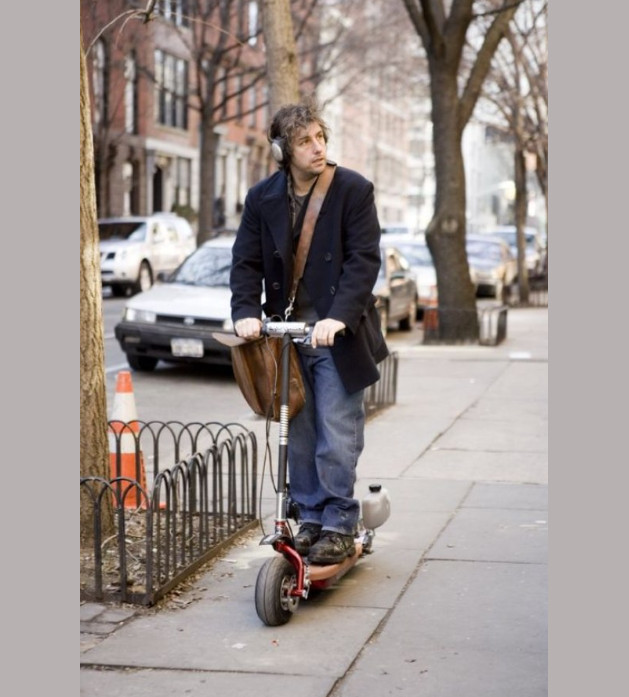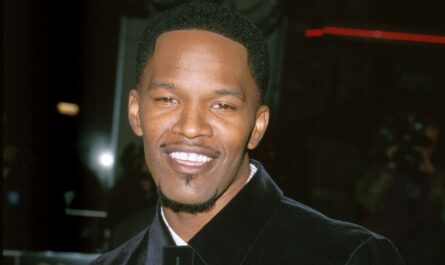In the realm of Hollywood, certain actors become synonymous with particular genres. For Adam Sandler, his name has long been associated with comedy—his trademark wit, irreverent humor, and larger-than-life characters earning him a well-deserved reputation as the “Comedy King” of the silver screen. However, in 2007, Sandler made a bold departure from his comedic roots to deliver a poignant and emotionally charged performance in “Reign Over Me.” Portraying the grieving widower Charlie Fineman, Sandler showcased a depth and vulnerability that stunned audiences and critics alike. Despite the film’s mixed reception and Sandler’s comedic reputation, his role in “Reign Over Me” stands as a testament to his versatility as an actor and deserves a standing ovation for its powerful portrayal of loss, redemption, and the human spirit.
A Departure from Comedy:
For audiences accustomed to seeing Adam Sandler in uproarious comedies like “Happy Gilmore” and “Billy Madison,” his role in “Reign Over Me” was a revelation. In the film, Sandler eschews the slapstick humor and zany antics that defined his comedic persona, instead delving deep into the psyche of a man consumed by grief and struggling to find his way in the aftermath of a devastating loss. As Charlie Fineman, Sandler embodies a character haunted by trauma, his pain palpable in every anguished expression and haunted glance. It is a departure from the larger-than-life personalities that Sandler typically portrays, signaling a bold step into uncharted dramatic territory.
Breaking Stereotypes:
Sandler’s decision to take on the role of Charlie Fineman was a calculated risk—one that defied the expectations of both audiences and critics. Known primarily for his comedic talents, Sandler faced skepticism and doubt from those who questioned his ability to tackle such weighty subject matter. Yet, with “Reign Over Me,” Sandler shattered stereotypes and silenced critics, delivering a performance that showcased his dramatic range and acting prowess. Gone was the goofy goofball of his comedy films; in his place stood a man grappling with profound sorrow and inner turmoil—a testament to Sandler’s willingness to push himself beyond the confines of typecasting and embrace the challenges of complex, nuanced roles.
Emotional Resonance:
At its core, “Reign Over Me” is a film about loss, grief, and the healing power of human connection. As Charlie Fineman, Adam Sandler captures the essence of profound sorrow and heartache, his performance imbued with a raw emotional intensity that resonates with audiences on a deeply personal level. From the haunting emptiness in his eyes to the quiet desperation in his voice, Sandler portrays the complexities of grief with a depth and authenticity that is both heartbreaking and profoundly moving. Through his portrayal of Charlie, Sandler invites viewers to empathize with the pain of loss, reminding us of the fragility of life and the importance of cherishing the moments we hold dear.
Challenge and Risk:
For Adam Sandler, “Reign Over Me” represented a departure from the familiar comforts of comedy—a leap into uncharted territory that carried with it both risk and reward. By taking on the role of Charlie Fineman, Sandler embraced the challenge of portraying a character mired in grief and despair, trusting in his own abilities as an actor to do justice to the weighty subject matter. It was a gamble that paid off, earning Sandler critical acclaim and garnering newfound respect for his dramatic talents. In the years since its release, “Reign Over Me” has endured as a testament to Sandler’s willingness to take creative risks and push the boundaries of his craft—a decision that has only served to enhance his reputation as a versatile and accomplished actor.
Overlooked Brilliance:
Despite the undeniable power of Adam Sandler’s performance in “Reign Over Me,” the film’s reception was somewhat muted, and Sandler’s dramatic turn went largely overlooked in the broader landscape of Hollywood. Part of this may be attributed to Sandler’s comedic reputation, which, while well-deserved, may have led some to underestimate his dramatic abilities. Additionally, the film’s mixed critical reception may have hindered its overall recognition, with some critics failing to fully appreciate the depth and complexity of Sandler’s portrayal of Charlie Fineman. Yet, for those who have had the opportunity to experience the film and witness Sandler’s transformative performance firsthand, “Reign Over Me” remains a poignant and powerful exploration of grief, redemption, and the enduring resilience of the human spirit.
Conclusion:
In the annals of cinematic history, Adam Sandler’s role in “Reign Over Me” stands as a testament to the transformative power of acting—a performance that transcends genre and expectation to touch the hearts and minds of audiences around the world. With his portrayal of the grieving widower Charlie Fineman, Sandler delivers a tour de force performance that showcases his depth, vulnerability, and emotional range as an actor. It is a role that challenges preconceptions, defies stereotypes, and reminds us of the boundless capacity for human empathy and understanding. While the accolades may have eluded him and the spotlight may have moved on, the legacy of Adam Sandler’s performance in “Reign Over Me” endures as a shining example of the profound impact that cinema can have on our lives—a legacy that deserves a standing ovation for its unwavering commitment to truth, authenticity, and the enduring power of the human spirit.



